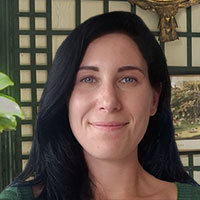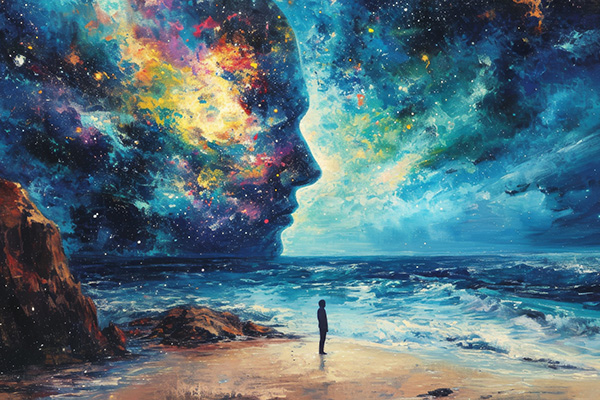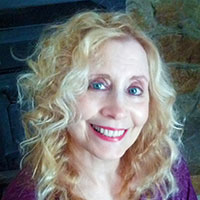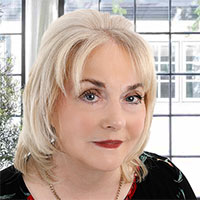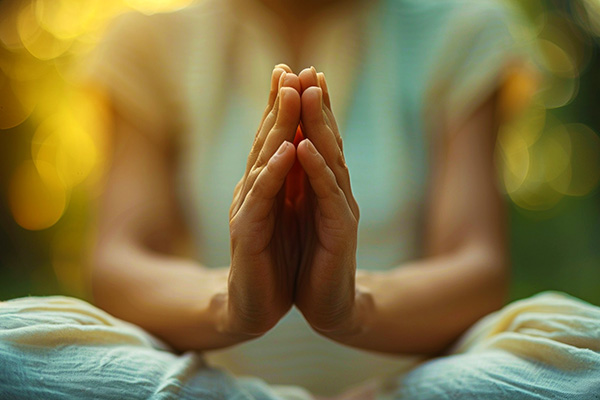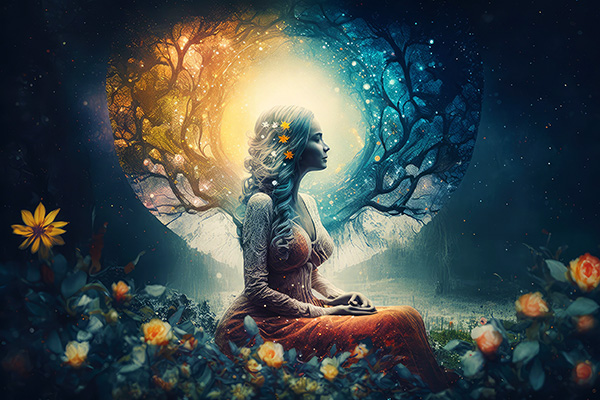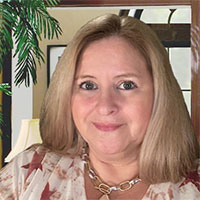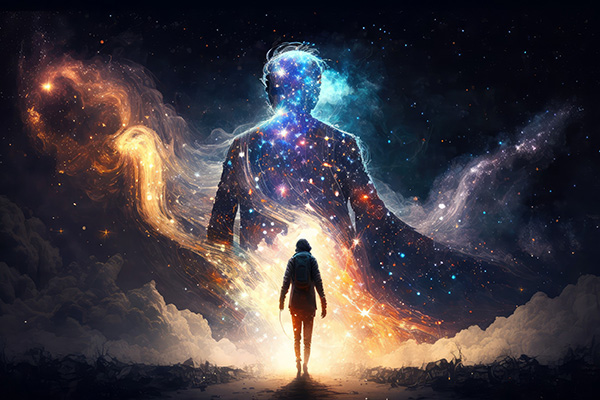Uncover the Advantages of Integrating a Rejuvenating Nightly Ritual into Your Everyday Practices
 How we conclude our days is as vital as how we commence them. However, this period often goes unnoticed as a chance to enhance our personal and spiritual wellness.
How we conclude our days is as vital as how we commence them. However, this period often goes unnoticed as a chance to enhance our personal and spiritual wellness.
Particularly while dealing with high-pressure situations or demanding schedules, being mindful about our transition into relaxation can greatly enhance the quality and rejuvenating properties of our downtime.
Establishing a straightforward, personalized nighttime ritual enables us to check in with ourselves and ensure that we are nurturing our mind, body, and spirit. It assists in relieving the day’s stress and sets the stage for a peaceful night’s slumber.
There are numerous methods to develop an evening ritual or routine that resonates with your spirit. The essential aspect is that your practice feels genuine and addresses your needs. Just a few simple steps can lead to a daily practice that aids in releasing the stress accumulated throughout the day.
Regardless of the practice you select, ensure it aligns with your schedule and is soothing, rather than making you feel like you have additional tasks to complete.
Select activities that promote relaxation and that you eagerly anticipate. Whether it’s journaling, enjoying calming music, or lighting a candle, engage in activities that enable you to mindfully shift from the day’s busyness to the night’s tranquility.
Many individuals express that they lack enough time in their day. For them, a daily spiritual routine appears to be an unnecessary luxury they cannot afford, yet these same individuals often spend hours nightly binge-watching TV or endlessly scrolling on their phones. This modern dilemma underscores how effortlessly we place mindless distractions above meaningful self-care. By intentionally reclaiming even a fraction of this time, we can nurture our spiritual wellness every evening in a manner that refreshes our body, mind, and spirit significantly more.
Prayer is the key of the morning and the bolt of the evening ~ Mahatma Gandhi
Taking the time to consciously wrap up the day signals our minds and bodies that it’s time to rest and recover. This purposeful pause can aid in effortlessly releasing stress and transitioning into a serene, restorative sleep.
Here are several of my cherished evening rituals:
Ritual Cleansing
Cleansing with water is an age-old purification practice embraced by numerous cultures and traditions globally. Water is traditionally regarded as a cleansing agent that washes away negativity, impurities, and imperfections. Additionally, water symbolizes renewal and rebirth in many cultures. Ritual baths or immersions in natural bodies of water are common practices.
In Hinduism, for instance, bathing holds deep significance, embodying purification, renewal, and devotion. It is a regular practice prior to prayer, religious ceremonies, and significant life events. It is believed to cleanse the body of impurities and prepare it for spiritual practices, purifying the mind and soul by eliminating negative emotions and thoughts.
In Christianity, baptism signifies spiritual rebirth and involves immersion in water. In Islam, performing wudu (ritual washing) before prayer is a fundamental practice that purifies body and mind, preparing the believer for communion with God.
Transforming your routine bath or shower into a spiritual ritual elevates a mundane activity into a profound, restorative process for the mind, body, and spirit. Numerous wonderful ways exist to infuse symbolic meaning and intention into your cleansing routine.
By integrating some of the following components into your daily bath or shower, you can establish a sacred environment for healing, self-care, and spiritual development.
Visualization: As the water cascades over you, visualize it washing away not just physical dirt, but also emotional and energetic impurities. Imagine the water radiating a cleansing light, carrying away negativity and leaving you revitalized and renewed. Formulating a clear intention for the ritual can amplify its emotional and energetic influence.
Mindfulness: Remain fully present during your bath or shower. Notice the water’s temperature, the soap’s texture, the sound of the droplets, and the sensations across your skin. Instead of letting your mind drift towards tomorrow’s responsibilities, focus on the feelings of cleansing. Sense the warmth of the water enveloping you and visualize the day’s stress and tension flowing away with each droplet. This brings awareness to the cleansing experience and fosters a sense of calm, clarity, and purpose.
Prayer: Recite a prayer or affirmation aloud or silently. For instance, “May this water cleanse my body and soul and align me with my highest good.” Prayer connects you to the spirit and the divine, establishing a sacred ambiance and inviting healing and blessings into the ritual.
Breathwork: Engage in slow, deep breathing while in the water. Inhale deeply through your nose, feeling your abdomen expand, then exhale slowly through your mouth. Synchronize your breathing with the water’s flow. Breathwork aids in releasing tension, clearing the mind, and encouraging relaxation, thereby fostering spiritual awareness.
Crystals: Arrange crystals like amethyst for spiritual connection, rose quartz for self-love, or black tourmaline for energy protection around the tub, or hold them while focusing on their metaphysical properties. Crystals enhance the ritual’s energy and align with specific goals such as healing, grounding, or manifestation. Ensure to only use suitable crystals and avoid submerging those sensitive to water. For instance, selenite and calcite may crumble or dissolve, while pyrite, hematite, and malachite can rust or lose luster when wet for extended periods.
Salts: Incorporate Epsom salt, Himalayan pink salt, or pure sea salt into your bath. Visualize the salts drawing toxins and negativity from your body and aura. Salt naturally purifies, detoxifies, and grounds, making it an effective addition to spiritual cleansing practices.
Aromatherapy: Add several drops of essential oils such as lavender for relaxation, eucalyptus for renewal, or frankincense for spiritual connection into your bath water or a diffuser in your bathroom. This will engage your senses, elevate your mood, and promote emotional and spiritual equilibrium.
Sound: Play soothing music, nature sounds, or spiritual chants during your bath. Alternatively, hum or chant mantras to create your own sound vibrations. Sound heals and harmonizes the energy body, lifts your vibration, and encourages a meditative state.
If time permits, you can also create the ultimate cleansing ritual by combining or layering all the aforementioned elements for an even deeper, truly transformative experience. For instance, begin by establishing an intention or reciting a prayer. Engage in visualization as you enter the water, envisioning it as a source of light and healing. Incorporate mindful breathing while focusing on the surrounding aromas and sounds during your bath.
Washing your feet can also symbolize cleansing. This simple act embodies the cleansing of the day’s “footsteps.” Be intentional and savor the feeling of the water while gently cleansing each part of your foot. Visualize any lingering tension being released and washing away.
Every sunset is an opportunity to reset. Every sunrise begins with new eyes ~ Richie Norton
End-Of-Day Meditation
An end-of-day meditation offers a means to release the mental and emotional congestion accumulated during the day, promoting relaxation, peace, and a sense of conclusion. Dedicating just a few minutes to center yourself at day’s end can be profoundly transformative. Even a brief meditation can significantly impact, but you can prolong it as needed to enhance the experience.
Set the scene: Locate a quiet, comfortable spot where you won’t be disturbed. Dim the lights or use soft lighting to establish a soothing ambiance. You may sit in a chair, on cushions on the floor, or lie down if that feels better. You can also play calming music or nature sounds in the background. Enhance relaxation with aromatherapy, such as lavender or chamomile essential oils.
Prepare your mind: Start by setting an intention, such as “I release the day and embrace rest” or “I allow myself to let go and find peace.”
Relax and breathe: Close your eyes and take slow, deep breaths. Inhale through your nose, hold for a moment, and then gently exhale through your mouth. Allow your breathing to find a natural rhythm.
Progressive relaxation: While breathing, consciously relax each part of your body, starting from your scalp. Gradually move down, softening your forehead, loosening your jaw, and relaxing your neck and shoulders. Continue through your arms, hands, chest, abdomen, hips, legs, and feet, visualizing each tension melting away. This practice helps release your energy and signals to your body that it’s time to rest.
By incorporating this end-of-day meditation regularly, you can develop a nightly ritual that fosters relaxation, rejuvenation, and a sense of peace as you ready yourself for the following day.
Evening Affirmations
Another practice I personally enjoy is affirmations. Often, we hear this encouraged first thing in the morning to establish a positive tone for the day, and certainly, that is beneficial! However, practicing your affirmations at day’s end can be equally transformative and meaningful. Acting as a gentle bridge between daily busyness and the restful state of sleep, evening affirmations aid in releasing stress, cultivating gratitude, and preparing your mind and body for renewal.
Affirmations such as “I release the tension and stress of the day” signal your subconscious to let go of worries, unhelpful thoughts, and unresolved emotions. Phrases like “I am calm” or “I am ready for rest and relaxation” help shift your mindset from active problem-solving to a state of surrender and ease, aligning your energy with the peaceful vibrations of rest.
Gratitude affirmations like “I am grateful for the lessons I learned today” or “I am grateful for the comfort of my bed” direct your focus on the blessings in your life, no matter how minor. This elevates your vibrational frequency and fosters a sense of contentment and abundance. Gratitude affirmations are especially impactful before bedtime as they shift your focus from what may be lacking to what is already present in your life. This perspective shift enhances your emotional state, alleviates anxiety, and promotes fulfillment.
Evening affirmations can also help ready your subconscious to carry positive energy into your dream state. This can enhance the quality of your sleep, encourage vivid or insightful dreams, and facilitate emotional healing during rest.
Before sleeping, recite your chosen affirmations aloud, inscribe them in a journal, or repeat them silently in your mind. Speak with sincerity and intention, allowing the words to resonate within you. Conclude your affirmations with a moment of gratitude, reflecting on the positive aspects of your day or life. Once you finish, take a few deep breaths and release any lingering thoughts or expectations. Allow yourself to smoothly drift into a state of peace.
Release Affirmations
I release all tension and welcome peace.
I let go of today’s worries and trust in tomorrow.
I am calm, secure, and supported.
Gratitude Affirmations
I am thankful for the love and support I have received today.
I appreciate my mind and body for carrying me through this day.
I recognize the beauty and lessons of today’s journey.
Sleep-Focused Affirmations
I welcome restful and rejuvenating sleep.
My dreams are serene and enlightening.
I awaken feeling refreshed, inspired, and aligned.
Integrate evening affirmations into your nightly routine. To deepen your practice, combine your affirmations with a short prayer, meditation, visualization, or breathwork. Over time, this practice establishes a cue for your mind and body to unwind, fostering a sense of closure for the day and paving the way for restorative sleep and a brighter morning.
By day the energies of our being are turned into artificial channels; by night our thoughts follow the path that is most natural to them ~ George B. Cheever
Nighttime Prayer
Nighttime prayer is commonly practiced as a sacred moment of reflection, gratitude, and devotion across various spiritual traditions. Prayer has long been a vital component of evening rituals in many spiritual practices, acting as a bridge between the hectic pace of daily life and the calm of the night.
For me, prayer often entails expressing gratitude, seeking guidance, and sending love to others. Sometimes I communicate with loved ones who have passed and find solace in that connection. Prayer invites us to reconnect with our spiritual essence, providing both comfort and rejuvenation.
For centuries, individuals have turned to prayer to honor the shift from wakefulness to sleep. This sacred act creates a sense of closure, indicating to the mind and body that it’s time to release and enter a state of relaxation.
Christianity, for instance, possesses various evening prayer traditions, such as the Compline prayer within the Liturgy of the Hours, which comprises psalms, hymns, and prayers asking for divine protection throughout the night while expressing gratitude for the day’s blessings. The term “compline” derives from the Latin word completorium, signifying the end of the daily prayer cycle.
The Shema serves as a central prayer in Jewish liturgy, typically recited twice daily, including before sleep. It proclaims the oneness of God and articulates devotion and trust in divine care. The evening Shema is part of the larger Maariv (evening) service and is a method to reaffirm faith and seek protection.
In Islam, the Isha prayer represents the final of the five daily prayers carried out at night, consisting of supplications for forgiveness, guidance, and protection. It marks the closure of the daily prayer cycle and a time for reflection and seeking closeness to God before rest.
Chanting mantras or prayers, such as the Om Mani Padme Hum or the Heart Sutra, commonly features in Buddhism’s evening practices. These chants cultivate mindfulness, spiritual awareness, and a sense of tranquility before slumber, aiding in mental clarity and relaxation. Similarly, in Hinduism, evening mantra chanting like the Gayatri Mantra or Om Namah Shivaya is believed to purify the mind and spirit, nurturing spiritual awareness and peace, assisting individuals in connecting with the divine, and preparing for restorative, rejuvenating sleep.
Regardless of our beliefs or chosen traditions, prayer is a universal act of introspection and connection, offering a moment of communion that soothes the spirit and prepares us for rest. It is a deeply personal practice transcending cultural and religious boundaries, inviting us to connect with the divine, the universe, or any spiritual presence or higher power that resonates within us.
Unlike affirmations, which declare truths, prayer serves as a conversation or sincere request. It opens a space of surrender where you can relinquish control and entrust your concerns to a higher power. By praying before resting, you create a sacred moment that allows the day’s energy to dissipate, making space for rest, healing, and rejuvenation.
Furthermore, prayer doesn’t need to be confined to formal language or complex rituals. It can be as simple as speaking from the heart, letting your thoughts and feelings flow naturally. It provides an impactful way to share your worries with your higher power or the universe, alleviating your emotional burden and substituting fear for peace. It also creates an opportunity to express gratitude for your day’s blessings, heightening your vibration and fostering a sense of inner peace and satisfaction. Prayer can also provide clarity and comfort amidst uncertainty, aiding you in aligning with your highest good.
Whether you pray silently, articulate your words softly, or write them down, this practice fosters a sense of comfort, security, and connection as you drift into sleep’s restorative embrace.
Simple Evening Prayer
As the day draws to a close, I pause to connect with the divine energy that surrounds me.
I express gratitude for the lessons and blessings of the day. I release any worry, stress, or tension into your loving care.
Please guide me through the night and bestow upon me peaceful rest and renewed energy for tomorrow.
I send love and light to all who need it, particularly my loved ones near and far. May they find comfort and safety.
I invite clarity, wisdom, and healing into my dreams tonight, knowing that I am always supported and loved.
Amen.
|
Sarah is a gifted Clairvoyant, Clairaudient, and Empath whose practice has primarily grown through word-of-mouth. Her abilities manifested as a child through precognitive dreams and messages she experienced. Her connection with Spirit became palpably personal during a visitation from her late mother, conveying the heartfelt message of love. Shortly after her mother’s passing, she discovered her mom’s Tarot deck, which sparked Sarah’s journey and calling to explore a vast array of her abilities, one of which is Eye-Gazing, a psychic skill she developed herself! Sarah continues to receive ongoing guidance and messages directly from Spirit Guides and Angels, maintaining a successful private practice in Canada since 1995. Highly active in her spiritual community, she’s frequently invited to lead local events, including group meditations. She candidly shares that the practice of meditation has significantly transformed her life. Sarah has created The Sacred Art of Creation, leading empowered women’s circles aimed at facilitating self-healing, manifestation, and alignment with one’s higher self. If you are interested in a reading with a compassionate reader who can both hear and convey messages directly from Spirit Guides and Angels, you can locate Sarah at PsychicAccess.com. |
Explore the Advantages of Integrating a Restorative Evening Ritual into Your Daily Life
In today’s fast-moving world, it’s simple to become immersed in the incessant activity of everyday existence. We often find ourselves perpetually busy, balancing work, family, and personal obligations. With so much happening, it is vital to make self-care a priority and seek ways to unwind and rejuvenate. One powerful approach to achieve this is by embedding a restorative evening ritual into your daily routine.
An evening ritual consists of a series of activities or practices you engage in before sleep to aid relaxation, unwinding, and preparing for a restful night. It serves as a deliberate transition from the day’s hustle to a state of serenity and calm. Here are several benefits you can gain by incorporating a restorative evening ritual into your daily routine:
1. Enhanced sleep quality: The foremost advantage of an evening ritual is its ability to enhance the quality of your sleep. Engaging in calming activities before bed signals to your body that it’s time to wind down, helping prepare you for a peaceful night’s rest. This can lead to better sleep quality, reduced insomnia, and overall enhanced well-being.
2. Lowered stress and anxiety: Life can often be overwhelming, so it is crucial to find ways to manage stress levels. Incorporating a restorative evening ritual can assist in unwinding, releasing tension, and letting go of daily worries. Activities like meditation, deep breathing exercises, or journaling can help soothe your mind and encourage relaxation, diminishing stress and anxiety.
3. Boosted productivity: Carving out time for yourself in the evening can actually enhance your productivity. By prioritizing self-care and relaxation, you allow your mind and body the opportunity to recharge and rejuvenate. This can lead to heightened focus, better concentration, and increased energy levels the following day, empowering you to handle tasks more efficiently.
4. Improved mental health: Adding a restorative evening ritual into your daily routine can positively influence your mental health. Activities like reading a book, indulging in a warm bath, or practicing gratitude can divert your focus from negative emotions and foster a more positive outlook. This contributes to enhanced mental wellness, heightened self-awareness, and a greater sense of happiness.
5. Strengthened relationships: Participating in an evening ritual can also positively influence your relationships. By setting aside dedicated time for yourself, you create space to connect with your thoughts, emotions, and inner self. This self-reflection can increase self-awareness and better understand your needs and desires. This awareness can, in turn, improve your communication skills, establish boundaries, and nurture healthier relationships with those around you.
Incorporating a restorative evening ritual into your daily routine doesn’t need to be complex or time-consuming. It’s about discovering activities that resonate with you and bring you joy and relaxation. Consider ideas such as reading a book, practicing yoga or meditation, enjoying a warm bath, journaling, listening to soothing music, or savoring a cup of herbal tea.
Keep in mind that consistency is key, and making your evening ritual a non-negotiable part of your routine is crucial. Dedicate a specific time each evening, ideally before bed, to partake in your chosen activities. By prioritizing self-care and establishing a restorative evening ritual, you can unlock the numerous benefits it provides and enrich your overall well-being. Continue reading

